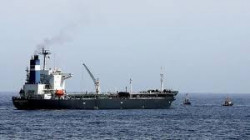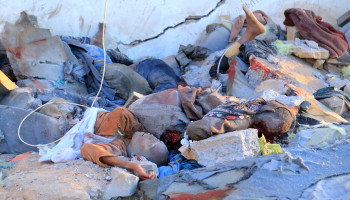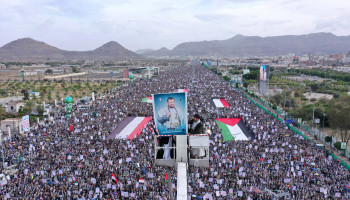The Criminal practices of aggression and acts of piracy come in the shadow of a flawed international silence, although everyone is aware of the scale of the humanitarian disaster caused by the denial of the entry of oil derivatives and impact on the various service sectors associated with the daily livelihood of citizens, and efforts to confront the Corona epidemic.
The Yemeni officials affirmed that the detention of fuel and food vessels by Saudi-led aggression coalition is a flagrant violation of norms, covenants and international humanitarian law, which portends a humanitarian catastrophe.
“The aggression coalition's holding of ships of oil derivatives and foodstuffs is a major crime against the Yemeni people,” the officials said.
They pointed out that the continued aggression and blockade on Yemen and the holding of oil derivatives ships would lead to the suspension of all vital sectors related to the daily lives of citizens, such as health, water, sanitation, electricity, and food and pharmaceutical industries, in addition to worsening the economic and living conditions of citizens and increasing the spread of diseases and epidemics, especially in light of the Corona pandemic.
The Yemeni officials called for the immediate release of oil derivatives that have been held for months by the aggression coalition.
For his part, Speaker of the Parliament Yahya Ali al-Ra’i sent letters to each of Secretary-General of the United Nations Antonio Guterres, UN envoy to Yemen Martin Griffiths, UN Humanitarian Affairs Coordinator in Yemen Lise Grande, and a number of heads of parliaments in the world.
The letters included an explanation of the repercussions and risks of continuing the arbitrary measures practiced by the aggression coalition countries led by Saudi Arabia and the United Arab Emirates, represented in the detention of ships carrying oil derivative, food and medicines, most recently a number of fuel ships off Jizan port and not allowing them to enter and unload their cargo in the port of Hodeidah.
The letters indicated that the aggression coalition prevents the entry of any oil shipment to the port of Hodeidah since the arrival of the ship "Destia Pucci" in early May, after holding it for a period exceeding 50 days despite obtaining a permit from the United Nations after arbitrary delay in the port of Djibouti, in violation of the Stockholm Agreement on facilitating movement for civilians and goods to and from the city of Hodeidah and its ports.
In the letters, the parliament speaker touched the catastrophic repercussions of these arbitrary measures that led to the crises in oil derivatives and gas, negative implications for all aspects of human, health and environmental life, and the increase in the living burdens on the Yemeni people, who live under siege exceeding five years, in a blatant violation of customs, charters and international law.
The letters noted to the coincidence of the siege imposed by the aggression coalition with the outbreak of Corona virus (COVID-19), which was accompanied by the return of those stranded abroad without providing the simplest precautions to confront the virus.
In this regard, the Parliament of the Republic of Yemen condemned the silence of the world's parliaments, United Nations organizations and bodies, and the Security Council towards the aggression countries' intransigence in preventing the arrival of fuel ships.
The parliament called for ending these obstacles to importing fuel, food and medicine shipments, and quick release of held ships, demanding parliamentary institutions, civil society organizations and all free people of the world to pressure their countries and governments of compel the coalition countries to stop the aggression and lift the siege on the Yemeni people.
In a related context, Minister of Public Health and Population Dr. Taha Al Mutawakkil warned against continuing to prevent the alliance of aggression the entry of oil derivatives ships into the port of Hodeidah, which has disastrous consequences for the health sector.
We are facing a real catastrophe if the public and private medical facilities are stopped because of the intransigence of the aggression countries that prevent the entry of the oil derivatives," the health minister said. “The health facilities are experiencing a real catastrophe, if the United Nations continues to tolerate and not pressure the aggression coalition for allowing the entry of oil ships.”
He pointed out that the private sector provides health services to more than 60 percent of the population, especially in light of the circumstances that Yemen is going through as a result of the continued aggression and siege.
For his part, Foreign Minister Engineer Hisham Sharaf warned of the consequences of the continuation of the alliance of aggression in the practice of the policy of collective punishment by preventing the entry of oil and gas derivatives ships.
Minister Sharaf warned in letters to the foreign ministers of the countries sponsoring the political settlement process in Yemen, the foreign ministers of brotherly and friendly countries, the Secretary-General of the United Nations, the President and members of the Security Council, the President and members of the United Nations Human Rights Council, and the UN envoy to Yemen, that the continued denial of access to gas and oil derivatives vessels would have disastrous consequences in the light of the Coved-19 pandemic and the need for fuel service sectors.
Source:Saba
Preventing entry of fuel ships is major crime against Yemeni people: Yemeni officials
الأحد, 14 يونيو 2020







